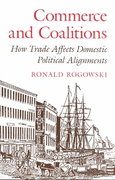Question
Keynesian Economics As the Depression deepened, the Classical have-faith solution lost support. Everyone was interested in the short run, not the long run. John Maynard
Keynesian Economics As the Depression deepened, the Classical "have-faith" solution lost support. Everyone was interested in the short run, not the long run. John Maynard Keynes put the concern most eloquently: "In the long run, we're all dead." Keynes stopped asking whether the economy would eventually get out of the Depression on its own and started asking what was causing the Depression and what society could do to counteract these forces. By taking this approach, he created the macroeconomic framework that focuses on short-run issues such as business cycles and how to stabilize output fluctuations. Keynesian economists are economists who believe that business cycles reflect underlying problems that can be addressed with activist government policies. While Keynes' ideas had many dimensions, the essence was that as wages and overall prices adjusted to sudden changes in overall spending (such as an unexpected decrease in household spending), the economy could get stuck in a rut. If, for some reason, people stopped buying-decreased their demand in the aggregate-firms would decrease production, causing people to be laid off. These people would, in turn, buy even less-causing other firms to further decrease production, which would cause more workers to be laid off, and so on. Firms' supply decisions would be affected by consumers' buying decisions, and the economy would end up in a cumulative cycle of declining production that would end with the economy stuck at a low level of income. In developing this line of reasoning, Keynes provided a simple model of how unemployment could be caused by too little spending and how the economy could fall into a depression. The issue was not whether a more desirable equilibrium existed. It was whether a market economy, once it had fallen into a depression and was caught in a cumulative downward cycle, could get out of it on its own in an acceptable period of time. In making his argument, Keynes carefully distinguished the adjustment process for a single market (a micro issue) from the adjustment process for the aggregate economy (a macro issue), arguing that the effects differ significantly when everyone does something versus when only one person does it. You were introduced to this problem in Chapter 4 under the name fallacy of composition. The problem is neatly seen by considering an analogy to a football game. If everyone is standing, and you sit down, you can't see. Everyone is better off standing. No one has an incentive to sit down. However, if somehow all individuals could be enticed to sit down, all individuals would be even better off. Sitting down is a public good-a good that benefits others but one that nobody on his or her own will do. Keynesians argued that, in times of recession, spending benefits not just the person spending but everyone, so government should spend or find ways of inducing private individuals to spend. This difference between individual and economywide reactions to spending decisions creates a possibility for government to exercise control over aggregate expenditures and thereby over aggregate output and income.
mention a short paragraph on what did or did not reflect the real world as you know it. The important part is to think critically about the material. please do not just paraphrase my question/material
Step by Step Solution
There are 3 Steps involved in it
Step: 1

Get Instant Access to Expert-Tailored Solutions
See step-by-step solutions with expert insights and AI powered tools for academic success
Step: 2

Step: 3

Ace Your Homework with AI
Get the answers you need in no time with our AI-driven, step-by-step assistance
Get Started


